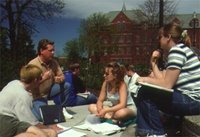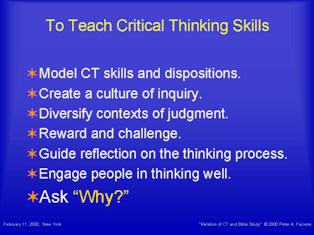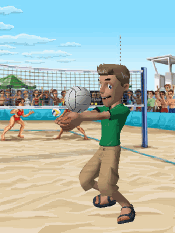Critical Teaching
 In a world where Education has constantly been the subject of change and ridicule, schools fight for the time and opportunity to teach students the new standards and benchmarks creatively.
In a world where Education has constantly been the subject of change and ridicule, schools fight for the time and opportunity to teach students the new standards and benchmarks creatively.There has been such an influx of political interruption within the public schools over the past six years. If you really take a look at what has happened through that time period, you might be amazed. Is there any room left for students to investigate, or extend their lessons? Are lessons open-ended enough to go off on a tangent and study something closely related?
With federal education plans being adopted over the past few years, teachers have had to narrow the "roads" they lead their students down. Many teachers are submitting themselves to defeat, and simply teaching toward the tests. This is something that I hope most teachers WILL NOT do. Keep that spark of creativity in your blood. Be the light that inspires your students to want to learn more.

Push the envelope... and foster a desire in their souls that drives them to ask questions: "Why?" "What's the difference?" "How come?" "Does this even matter?"
To teach is not only to present them with the information so that they may learn. To teach is to instill in them a passion for greater knowledge.
Teachers- we need to begin to teach our students critically. The future doctors, lawyers, and teachers shouldn't merely accept things as fact, but need to learn to question why things are the way they are. If they disagree with something, they can make a difference.
Critical teaching, in my own perception, is educating students to prepare them for real life. Another key aspect of critical teaching is presenting tasks to students, and asking them to become activists in some form. The most important concept of all is when students begin to question:
WHY?
What can you do in your classroom?
You can relate things easily to the real world, in all subject areas.
They may ask, "Why am I doing this?" Let your response be, "This is a skill that will help you when you're on your own."
Write letters, assign projects, build things... these are all ways to teach critically. Let students be active and involved in classwork.
The children are the future. Don't allow them to accept everything as fact. Challenge them to ask questions, and seek greater things. By allowing them to think critically, who knows what great things are in store for the world?
















